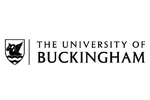

| The award | How you will study | Study duration | Course start | Domestic course fees | International course fees |
|---|---|---|---|---|---|
| MSc | Full-time, Part-time | 1 - 2 year | September, January | - | - |
The School of Psychology fosters a culture of collaborative, multidisciplinary research and you will join a vibrant community that includes regular work-in-progress seminars to foster an active research environment. You will join one of our four research hubs described below, all of which are engaged in inter-institutional collaborations, including some with non-academic partners such as health-care providers.
We are happy to consider research proposals on a wide range of topics relevant to our hubs, but may also be looking to fill specific research roles in some areas. Click on the link to each hub below to find out more.
Study can be on either a full-time or a part-time basis. The minimum period of study for achieving your MSc is one year full-time or two years part-time.
You must have a 2:1 or higher in an undergraduate Psychology degree, or a closely related degree with a solid understanding of psychology research methods and statistics.
Interested in talking to us? Click here to contact us, and we will be back in touch for an informal chat to discuss the opportunities available. For our taught MSc in Health Psychology, click here.
This research area is led by Dr Philip Fine and Dr Kathryn Friedlander together with Dr Gillian Hill and Dr Helen Clegg. The main focus of the centre is the exploration of the drivers of excellence in performance (whether cognitive, creative or practice-based). We welcome applications from potential MSc and PhD candidates across a wide range of related topic areas, including:
Find out more about our MSc (Research) in the Psychology of Creativity and Performance Expertise.
CREATE staff are at the forefront of creativity research in the UK, and are founder members of the UK Creativity Researchers group, which meets annually; we also collaborate with a number of external contacts in the performance fields (such as music conservatoires), as well as internal colleagues in Applied Computing and the University of Buckingham Medical School. More information here.
This research hub, focusing on Health, Relationships and Wellbeing, is headed up by Dr Emily Mattacola, together with Dr Faisal Satti and Dr
Contact University of Buckingham to find course entry requirements.
Below are some suggested courses at other providers that you may also be interested in:
Designer in Sustainable Innovation Bachelor Degree
BESIGN The Sustainable Design School
Find out moreGlobal Business & Economics Bachelor of International Liberal Arts
International College of Liberal Arts (iCLA) at Yamanashi Gakuin University
Find out moreIf you do not meet the entry requirements for this course then consider one of these postgraduate preparation courses from another institution:
There are 156 other courses listed from University of Buckingham. A selection of these are displayed below:
Join the Сưłć´«Ă˝ email list and never miss a chance to turn your study abroad dreams into reality!

Find out more about studying in the United Kingdom